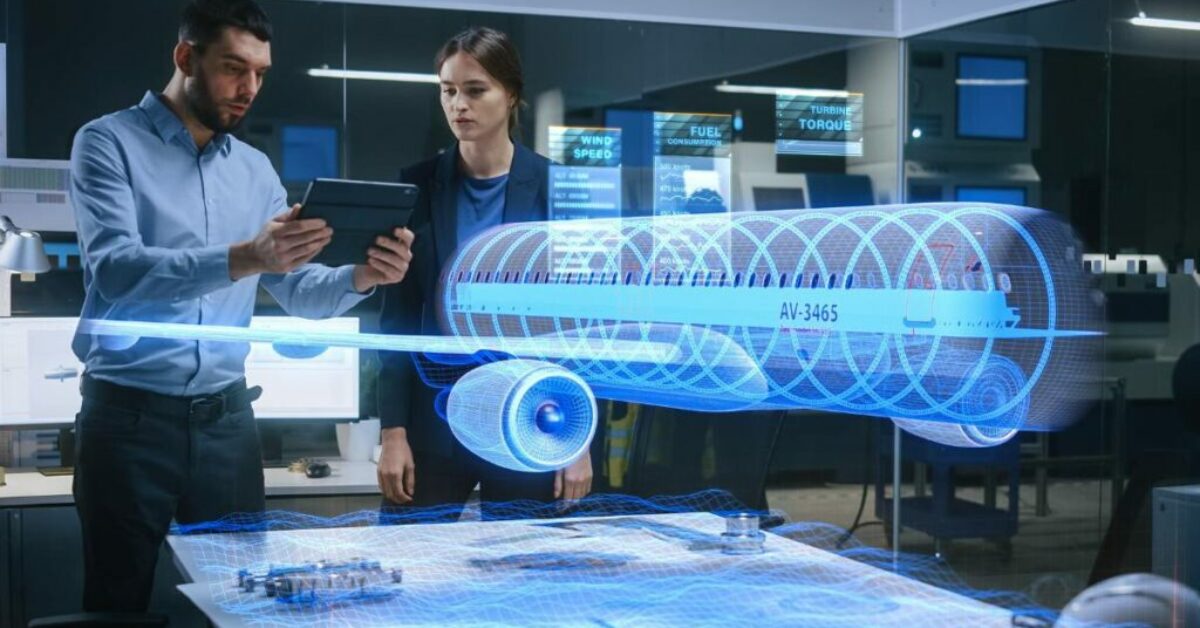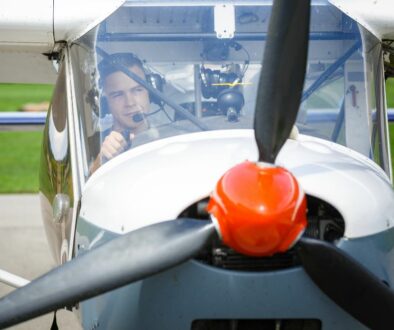How To Become An Aerospace Engineer?
Becoming an aerospace engineer is a dream come true for many. The field of aerospace engineering involves designing, developing, testing, and maintaining a range of vehicles and systems used for space exploration and aviation. This field requires a combination of skills, passion, and education. If you’ve ever wondered how to become an aerospace engineer, then read on as we explore the steps, skills, and benefits of a career in this field.
Steps To Becoming An Aerospace Engineer
Becoming an aerospace engineer requires a lot of training and education. The following are steps you need to take to become an aerospace engineer:
- Earn a bachelor’s degree:
A bachelor’s degree in aerospace engineering is the first step to becoming an aerospace engineer. This degree provides students with the core knowledge needed for the field.
- Gain work experience:
Most employers require work experience, and internships are an excellent way to gain this experience. During internships, you’ll gain hands-on experience that can help you stand out when applying for jobs.
- Earn a master’s degree:
While a bachelor’s degree may get you an entry-level job in the field, a master’s degree can help you advance in your career.
- Licensing:
You also need to become licensed to work as an aerospace engineer. Licensing requirements vary by state, so it’s best to research your state’s requirements.
- Continuing education:
Because technology changes fast, it’s essential to stay updated on new developments. Taking continuing education courses can help you stay current in the field.
Skills Needed For Becoming An Aerospace Engineer
Besides education, there are other necessary qualities that aspiring aerospace engineers should possess, including:
- Analytical and problem-solving skills: Aerospace engineers must be able to solve complex problems using critical analysis skills. They need to be able to analyze data, identify trends, and develop solutions based on their findings. This requires a strong foundation in mathematics, physics, and other sciences.
- Attention to detail: This field requires an eye for detail to identify and address problems before they escalate. Aerospace engineers must be meticulous in their work, paying close attention to every detail to ensure that their designs are safe, reliable, and efficient.
- Communication skills: Effective communication skills are essential for explaining technical information in simple terms that everyone can understand. Aerospace engineers often work in teams with other engineers, technicians, and professionals, so they must be able to communicate their ideas clearly and concisely.
- Creativity: Aerospace engineers need to come up with innovative design ideas to solve new problems and improve existing systems. They must be able to think outside the box and come up with solutions that are both practical and innovative.
Aside from these essential skills, there are other qualities that can help aspiring aerospace engineers succeed in their careers. These include:
- Curiosity: Aerospace engineers must be curious and eager to learn about new technologies and advancements in their field. They must stay up-to-date with the latest developments and be willing to experiment with new ideas and approaches.
- Flexibility: The aerospace industry is constantly evolving, so aerospace engineers must be adaptable and flexible. They must be able to adjust their designs and approaches as new technologies emerge and as customer needs change.
- Teamwork: Aerospace engineers often work in teams, so they must be able to collaborate effectively with others. They must be able to work towards a common goal and be willing to compromise and listen to the ideas of others.
- Leadership: As aerospace engineers gain experience, they may be called upon to lead teams or projects. They must be able to inspire and motivate others, delegate tasks effectively, and make tough decisions when necessary.
Overall, becoming an aerospace engineer requires a combination of technical skills, creativity, and personal qualities. With the right education and training, as well as the right mindset, aspiring aerospace engineers can build rewarding and fulfilling careers in this exciting field.
What is An Aerospace Engineer?
An aerospace engineer is a highly skilled professional who specializes in designing and developing aircraft, spacecraft, missiles, and other aerospace products. Aerospace engineers use their vast knowledge of physics, mathematics, and computer technology to improve air and space travel. They play a crucial role in advancing the aerospace industry and making air travel safer and more efficient.
One of the primary responsibilities of an aerospace engineer is to design and develop new aerospace products. They work closely with other engineers, scientists, and technicians to create designs that meet specific requirements. They must consider a wide range of factors, including aerodynamics, materials, propulsion, and systems integration, to ensure that the final product is safe, reliable, and efficient.
Aerospace engineers are also involved in testing and evaluating prototypes. They use advanced computer simulations and other analytical tools to assess the performance of new designs and identify any potential problems. They may also conduct physical tests on full-scale models or prototypes to verify the accuracy of their simulations.
In addition to designing and testing new aerospace products, aerospace engineers also play a critical role in solving problems that arise during testing. They must be able to quickly identify and diagnose any issues that arise and develop solutions to address them. This requires a deep understanding of the underlying physics and engineering principles involved in aerospace systems.
Most aerospace engineers work for the government or private companies that specialize in aerospace products. They typically work in research and development or manufacturing. Some may work in an office or laboratory setting, while others may work in manufacturing plants or testing facilities. Regardless of their specific work environment, aerospace engineers must be highly skilled and knowledgeable in their field to be successful.
Aerospace engineering is an exciting and challenging field that plays a critical role in advancing air and space travel. Aerospace engineers use their vast knowledge of physics, mathematics, and computer technology to design and develop new aerospace products, test and evaluate prototypes, and solve problems that arise during testing. They are essential to the success of the aerospace industry and to making air travel safer and more efficient.
The Benefits of Working as An Aerospace Engineer
Working as an aerospace engineer comes with numerous benefits, including:
- Excellent salary: Aerospace engineers are among the highest-paid engineers, with an average annual salary of $116,500.
- Job security: As long as people need air and space travel, aerospace engineers will be in high demand.
- Prestige: Aerospace engineering is a prestigious field, and those who work in the field are respected for their contributions to science and technology.
- Innovation: Aerospace engineers are at the forefront of technological innovation, with opportunities to create and develop new products.
However, the benefits of working as an aerospace engineer go far beyond just a high salary and job security. For those who are passionate about space exploration and aviation, working in this field can be incredibly fulfilling and rewarding.
One of the most exciting aspects of being an aerospace engineer is the opportunity to work on groundbreaking projects that push the boundaries of what we know and what we can achieve. Whether it’s designing a new spacecraft to explore the outer reaches of our solar system or developing cutting-edge technology to make air travel faster and more efficient, aerospace engineers are constantly pushing the limits of what is possible.
Another benefit of working in aerospace engineering is the chance to collaborate with some of the brightest minds in science and technology. Aerospace engineers often work in teams, collaborating with other engineers, scientists, and researchers to solve complex problems and develop new technologies. This collaborative environment fosters creativity and innovation, and allows engineers to learn from and be inspired by their colleagues.
Working in aerospace engineering can also be incredibly fulfilling on a personal level. Many aerospace engineers feel a sense of pride and accomplishment knowing that their work is contributing to the advancement of science and technology, and to the exploration of the universe. For those who are passionate about space and aviation, there are few careers that can offer the same level of excitement and fulfillment.
Becoming an aerospace engineer takes a lot of hard work and dedication. However, for those who are passionate about space exploration and aviation, it’s a rewarding and secure field that can offer numerous benefits throughout your career. From the opportunity to work on groundbreaking projects to the chance to collaborate with some of the brightest minds in science and technology, working as an aerospace engineer can be an incredibly fulfilling and exciting career choice.




